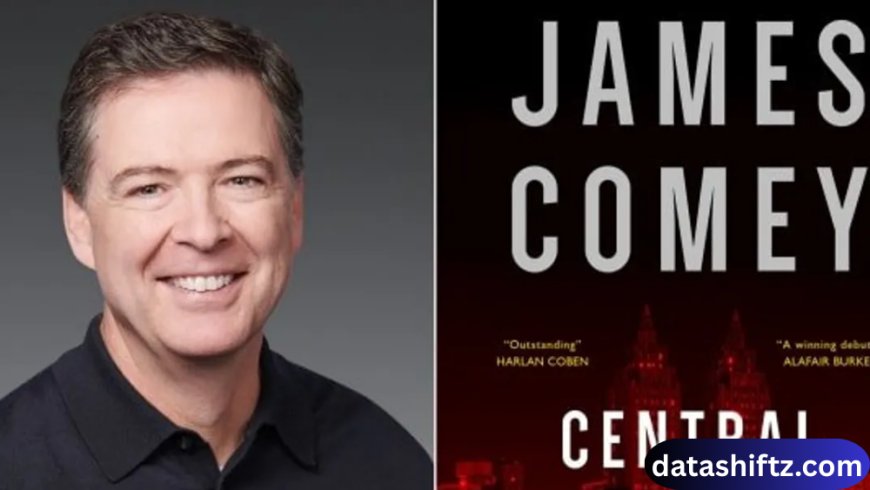James Comey: A Profile of Leadership, Controversy, and Public Service

Introduction
James Comey is one of the most prominent figures in modern American law enforcement. Best known as the former Director of the Federal Bureau of Investigation (FBI), Comey’s career has spanned decades in both public service and the private sector. His tenure at the FBI, particularly during the 2016 U.S. presidential election, placed him at the center of national attention and controversy. Beyond his public controversies, Comey’s career reflects a complex narrative of integrity, ethics, and challenges in law enforcement leadership.
This article explores Comey’s early life, professional trajectory, major controversies, leadership philosophy, and lasting influence on American public service.
Early Life and Education
Childhood and Upbringing
James Brien Comey Jr. was born on December 14, 1960, in Yonkers, New York. Raised in a middle-class family, he was influenced by values of discipline, honesty, and civic responsibility. His father was a construction executive, and his mother emphasized the importance of education and ethics, which shaped Comey’s early ambitions.
Academic Achievements
Comey attended the College of William & Mary, where he earned a degree in chemistry in 1982. Notably, he graduated magna cum laude, demonstrating strong academic performance. Afterward, he pursued a law degree at the University of Chicago Law School, graduating magna cum laude in 1985. His legal education and analytical skills laid the foundation for a distinguished career in law enforcement and public service.
Career in Public Service
Early Legal Career
Comey began his career as a law clerk for Judge Henry J. Friendly of the U.S. Court of Appeals. He then joined the U.S. Department of Justice as a prosecutor, working under both Republican and Democratic administrations. His early work focused on white-collar crime, organized crime, and public corruption cases, establishing his reputation as a dedicated and ethical attorney.
Leadership in the Justice Department
In 2003, under President George W. Bush, Comey was appointed Deputy Attorney General of the United States, overseeing significant portions of the Department of Justice. He became known for his strong stance on ethics, accountability, and legal rigor, particularly regarding issues of national security and counterterrorism in the post-9/11 era.
Director of the FBI
In September 2013, Comey was appointed Director of the FBI, succeeding Robert Mueller. During his tenure, he focused on modernizing the bureau, emphasizing cybersecurity, counterterrorism, and internal integrity reforms.
Major Controversies
2016 Presidential Election
Comey gained national prominence due to his handling of the Hillary Clinton email investigation. In July 2016, he publicly announced that the FBI would not recommend criminal charges against Clinton, but criticized her handling of classified information. Later, in October 2016, Comey sent a letter to Congress stating that the FBI was reopening the investigation, which sparked political debate and may have influenced the election outcome.
Dismissal by President Trump
In May 2017, President Donald Trump dismissed Comey as FBI Director, citing his handling of the Clinton investigation. Comey’s dismissal prompted widespread debate about the independence of the FBI, executive authority, and political interference in law enforcement.
Testimony and Public Statements
Following his dismissal, Comey testified before Congress, providing detailed accounts of his interactions with the President. He published a memoir, “A Higher Loyalty: Truth, Lies, and Leadership”, discussing ethical decision-making, integrity, and the pressures of public office. His accounts sparked both support and criticism, highlighting the polarizing nature of his tenure.
Key Milestones in James Comey’s Career
| Year | Position/Role | Key Contributions or Events |
|---|---|---|
| 1985 | Law Clerk, U.S. Court of Appeals | Assisted in complex federal cases, building legal expertise |
| 1996 | U.S. Attorney for the Southern District of New York | Prosecuted white-collar and organized crime cases |
| 2003 | Deputy Attorney General | Oversaw DOJ operations; emphasized ethics and accountability |
| 2013 | Director of FBI | Focused on cybersecurity, counterterrorism, and internal reforms |
| 2016 | Clinton Email Investigation | Led investigation impacting 2016 presidential election |
| 2017 | Fired as FBI Director | Dismissal by President Trump led to national debate and congressional testimony |
| 2018 | Author & Public Speaker | Published memoir “A Higher Loyalty,” discussed leadership and ethics |
Key Attributes and Leadership Qualities
-
Integrity: Consistently emphasized ethical conduct and accountability.
-
Analytical Skills: Strong legal and investigative reasoning.
-
Courage: Made controversial decisions under intense public scrutiny.
-
Transparency: Advocated for openness and communication with Congress and the public.
-
Adaptability: Modernized the FBI to address cybersecurity and emerging threats.
-
Public Service Commitment: Dedicated decades to law enforcement and government service.
-
Ethical Decision-Making: Guided by a personal code of ethics, even under political pressure.
-
Mentorship: Influenced future leaders in law enforcement and public policy.
-
Crisis Management: Navigated highly sensitive investigations and national security concerns.
-
Advocacy for Rule of Law: Strong proponent of independent and impartial law enforcement.
Impact on American Public Service
James Comey’s career highlights the complex balance between law enforcement, ethics, and politics. His actions, particularly during the 2016 election, remain a case study for government officials navigating politically sensitive investigations.
Contributions to the FBI
Under Comey, the FBI underwent technological modernization, expanding its cybersecurity and counterterrorism capacities. He also instituted programs emphasizing ethics training and accountability for FBI personnel.
Influence on Public Debate
Comey’s tenure prompted critical discussions on:
-
Executive interference in law enforcement
-
Ethical obligations of public officials
-
Transparency and communication in high-stakes investigations
His memoir and public speeches continue to shape debates on leadership, integrity, and public accountability.
Conclusion
James Comey remains one of the most consequential figures in modern American law enforcement. From his early legal career to his controversial tenure as FBI Director, Comey’s story embodies the challenges of upholding integrity and ethics in a complex political environment. His contributions to the FBI, coupled with his public advocacy for accountability and transparency, have left an enduring mark on American governance.
While opinions about his decisions may differ, Comey’s career underscores the importance of ethical leadership, courage under pressure, and a commitment to public service—qualities that continue to inspire law enforcement professionals and public servants nationwide.




























